Go back a few years and own label products would have been seen as cheap and nasty by everyone except those on low budgets. Today the stigma attached to own label products has been almost wiped put and while they may often be cheaper, own labels are certainly not nasty.
Symbol groups and wholesalers have responded to consumer demand and now provide own brands in a greater choice and greater quality.
Chilled foods lead the way, with virtually all own label growth coming from this sector in recent years. According to Mintel, chilled own label sales grew by 80% in value terms between 1999 and 2004.
Spar's Goodsense range of products and the launch this month of its 'premium' Treat Yourself range are just two examples of activity in a thriving market. Demand for a 'value' brand will still exist, especially in less affluent areas, but with symbol groups and wholesalers constantly improving their offering, own label is taking its fair share of the profits from some of the big name manufacturers.
Spar group trading director Peter Miller says the group's new Treat Yourself range, which includes products such as sandwiches, cooked ham, sausages and fresh produce, has been introduced because customers are willing to spend more on premium products.
"This shift in consumer behaviour is driving the growth of premium products and Spar is determined to maximise this opportunity," says Miller. "Our Goodsense range is also set to be expanded further and Spar is achieving own brand growth in other areas, too. Salad sales are up massively as they are entirely right for our market. Fresh chicken is also in growth and our sandwiches are experiencing year-on-year growth of 131%.
"Own brand is the best way to differentiate retailer propositions," continues Miller. "Spar has the most comprehensive own brand range in the non 'big box' grocer market and our aggressive review process and subsequent relaunches mean we are closing the gap between Spar and the large multiples."
Miller believes the 'inferior' tag sometimes attached to own brands is often unfair and says: "Although a stigma may sometimes apply to other own brands in the sector we are very happy to put the Spar name up against other brands retailers stock," he says. "All Spar brands are performance tested to ensure they meet the target standard in terms of quality, weight, size and packaging. Stocking own label makes a statement about your store. It says you are a retailer with confidence in your brand."
Own label is following similar trends to the big brand products, according to Miller. "Own label is definitely following trends such as health, and in certain areas such as ready meals Spar is leading the way. Our healthy range, Goodsense, has sold very well and is set to be expanded again."
Nisa-Today's has also recognised the need to offer customers a choice across its own label range with four separate brands now available: Value, Heritage, Heritage Healthy Choice and Heritage Select. Central distribution trading managing director John Sharpe comments: "Heritage is the group's flagship mid-range brand. It includes 600 ambient, chilled and frozen products, with an extensive fresh produce range. Heritage Healthy Choice is in steady growth and encompasses 24 products including chilled ready meals, pâté, coleslaw, potato salad and garlic bread.
"Heritage Select is the premium fine food range within our own label portfolio and includes high-end chilled ready meals, fresh prepacked meat and exotic fruit and vegetables. The Value range is the group's price-fighting range, which has 42 lines including cooked ham and cheese, carbonated drinks and tinned vegetables."
Sharpe believes a good own label range can offer retailers healthy profit margins and shoppers a wider selection. "Profit margins are greater as own label is sold under the retailers' control," he adds. "Successful own label products are those that are purchased frequently, such as dairy and household goods, as consumers can ascertain their quality easily."
Musgrave Budgens Londis (MBL) has seen an increase in sales of its own label products mainly as a result of extending its fresh and chilled range in both Budgens and Londis. "At present, there are about 400 Londis own label lines and about 1,000 Budgens products," says head of buying for impulse John Taylor. "Budgens has more own label products to offer at the moment because of its greater emphasis on fresh food, but there is a definite move to develop the fresh food offering in our Londis stores that should result in a further increase in own label sales."
Like many own brands, MBL's products are also following the main brand trends such as health, to keep on top of shopper demand. Sales of some soft drinks and water are up, as Taylor explains: "There has definitely been a increase in sales of low- and no-sugar soft drinks at MBL and we're also taking our share of the growing water market with Londis own label Montgomery spring water up 18.8%."
Taylor believes own label sales are a vital component of any convenience store. "Own label definitely gives retailers a point of difference and offers higher profit margins," he says. "It gives greater price competitiveness and to maximise sales should always be placed next to the number one brand in the category.
"Another example of a section of own label that sells well is alcohol, where our Imperial vodka - which retails at less than £10 a bottle - is extremely popular."
Wholesalers Landmark and Booker have also seen an increase in the popularity of own label alcohol ranges. Landmark recently relaunched its Prince Consort range of spirits while three products sold through Booker - Malt House Vintners wine, Chekov vodka and Lynx lager - are also experiencing growth.
Landmark marketing director Chris Rose says: "Own label is immensely successful. Landmark's own label ranges offer a point of difference and exclusivity over the multiples. They are quality products that are well-packaged to provide a quality alternative to the big-brand competitors.
"Landmark's own label ranges are extremely valuable for retailers and sell very well across all sectors, from Prince Consort and the Vintners Collection, right through to the Lifestyle and Lifestyle Value range of grocery products."
Mark Johnson, owner of Celebrations store and off licence in Stockport, agrees. He has enjoyed an increase in sales of both the Vintners Collection and Prince Consort spirits. "Vintners does really well for me," says Mark. "Customers like the fact that it is a quality brand and they can try various types within the range with similar enjoyment. They have come to trust the brand and associate it with a good product, rather than simply making their wine purchases based on price."
Booker's Happy Shopper brand covers a whole range of categories, and sells well when merchandised correctly in the right stores. Booker director of retail and Premier development Steve Fox says: "The Happy Shopper brand is worth £75m at rrp. The best-selling Happy Shopper products are core convenience items that boast good quality and competitive pricing, such as biscuits, toilet tissue and carbonates. Booker's own brand products are specifically developed for c-store retailers and their consumers. The products sell extremely well, particularly when they are merchandised correctly and supported with strong pos material."
Palmer & Harvey McLane sales director Dennis Scott also believes that own label has an important part to play in the convenience sector. "Own label can be a unique and powerful tool to ensure competitiveness and improve profitability for independent retailers," Scott explains.
"Our M brand logo was created to modernise the Mace own label packaging. The range offers a unique point of difference, good margins, exclusive promotional support and value for money for both retailers and customers."
So whether you decide to use own labels as a value offering or as a premium or healthy alternative to main big brands, there's an advantage to be had. With more shoppers changing their attitudes and selecting own brands without a second thought, it's vital you also follow the trends and have faith in the future of own label
1. Soft white toilet tissue 4s
2. Luxury bathroom tissue 2s
3. Firelighters
4. Orange juice 1ltr
5. Lemonade 2ltr
6. Giant facial tissues 100s
7. Pure sunflower oil 1ltr
8. Garden peas 500g (frozen)
9. Extra-wide foil
10. Cat litter 5kg
Londis retailer Terry Philpott owns Martin's of Castle Cary in Somerset. He has developed a range of products branded with his own store name and logo. Rather than offer a cheaper alternative to the main brands, Terry's approach to own label is to offer a premium choice to customers willing to pay that bit extra.
By teaming up with premium own label manufacturers including Forest Products and House of Dorchester, Terry has developed a totally unique range. "The products, which include crisps, pickles, jams and biscuits, are all personalised with the store name and logo and sell very well," says Terry.
"We also have our own range of chocolate, provided by House of Dorchester. The customers like the fact that the products are unique to the store and that a bit of extra effort has gone in to providing a quality product."
The approach works well for Terry, who trades out of a Georgian building dating back to 1760 and which has operated as a store since 1875. The personal style of his own label products fits both his customer profile and traditional store setup.
"I'd definitely recommend other independent retailers try something similar," adds Terry.
"Although there is a plate charge where you have to pay an initial amount for the design work up front, we have easily recouped our money. We also use a lot of our own label products for our hampers, which we have just started selling over the internet.
Symbol groups and wholesalers have responded to consumer demand and now provide own brands in a greater choice and greater quality.
Chilled foods lead the way, with virtually all own label growth coming from this sector in recent years. According to Mintel, chilled own label sales grew by 80% in value terms between 1999 and 2004.
Spar's Goodsense range of products and the launch this month of its 'premium' Treat Yourself range are just two examples of activity in a thriving market. Demand for a 'value' brand will still exist, especially in less affluent areas, but with symbol groups and wholesalers constantly improving their offering, own label is taking its fair share of the profits from some of the big name manufacturers.
Spar group trading director Peter Miller says the group's new Treat Yourself range, which includes products such as sandwiches, cooked ham, sausages and fresh produce, has been introduced because customers are willing to spend more on premium products.
"This shift in consumer behaviour is driving the growth of premium products and Spar is determined to maximise this opportunity," says Miller. "Our Goodsense range is also set to be expanded further and Spar is achieving own brand growth in other areas, too. Salad sales are up massively as they are entirely right for our market. Fresh chicken is also in growth and our sandwiches are experiencing year-on-year growth of 131%.
"Own brand is the best way to differentiate retailer propositions," continues Miller. "Spar has the most comprehensive own brand range in the non 'big box' grocer market and our aggressive review process and subsequent relaunches mean we are closing the gap between Spar and the large multiples."
Miller believes the 'inferior' tag sometimes attached to own brands is often unfair and says: "Although a stigma may sometimes apply to other own brands in the sector we are very happy to put the Spar name up against other brands retailers stock," he says. "All Spar brands are performance tested to ensure they meet the target standard in terms of quality, weight, size and packaging. Stocking own label makes a statement about your store. It says you are a retailer with confidence in your brand."
Own label is following similar trends to the big brand products, according to Miller. "Own label is definitely following trends such as health, and in certain areas such as ready meals Spar is leading the way. Our healthy range, Goodsense, has sold very well and is set to be expanded again."
Nisa-Today's has also recognised the need to offer customers a choice across its own label range with four separate brands now available: Value, Heritage, Heritage Healthy Choice and Heritage Select. Central distribution trading managing director John Sharpe comments: "Heritage is the group's flagship mid-range brand. It includes 600 ambient, chilled and frozen products, with an extensive fresh produce range. Heritage Healthy Choice is in steady growth and encompasses 24 products including chilled ready meals, pâté, coleslaw, potato salad and garlic bread.
"Heritage Select is the premium fine food range within our own label portfolio and includes high-end chilled ready meals, fresh prepacked meat and exotic fruit and vegetables. The Value range is the group's price-fighting range, which has 42 lines including cooked ham and cheese, carbonated drinks and tinned vegetables."
Sharpe believes a good own label range can offer retailers healthy profit margins and shoppers a wider selection. "Profit margins are greater as own label is sold under the retailers' control," he adds. "Successful own label products are those that are purchased frequently, such as dairy and household goods, as consumers can ascertain their quality easily."
Musgrave Budgens Londis (MBL) has seen an increase in sales of its own label products mainly as a result of extending its fresh and chilled range in both Budgens and Londis. "At present, there are about 400 Londis own label lines and about 1,000 Budgens products," says head of buying for impulse John Taylor. "Budgens has more own label products to offer at the moment because of its greater emphasis on fresh food, but there is a definite move to develop the fresh food offering in our Londis stores that should result in a further increase in own label sales."
Like many own brands, MBL's products are also following the main brand trends such as health, to keep on top of shopper demand. Sales of some soft drinks and water are up, as Taylor explains: "There has definitely been a increase in sales of low- and no-sugar soft drinks at MBL and we're also taking our share of the growing water market with Londis own label Montgomery spring water up 18.8%."
Taylor believes own label sales are a vital component of any convenience store. "Own label definitely gives retailers a point of difference and offers higher profit margins," he says. "It gives greater price competitiveness and to maximise sales should always be placed next to the number one brand in the category.
"Another example of a section of own label that sells well is alcohol, where our Imperial vodka - which retails at less than £10 a bottle - is extremely popular."
Wholesalers Landmark and Booker have also seen an increase in the popularity of own label alcohol ranges. Landmark recently relaunched its Prince Consort range of spirits while three products sold through Booker - Malt House Vintners wine, Chekov vodka and Lynx lager - are also experiencing growth.
Landmark marketing director Chris Rose says: "Own label is immensely successful. Landmark's own label ranges offer a point of difference and exclusivity over the multiples. They are quality products that are well-packaged to provide a quality alternative to the big-brand competitors.
"Landmark's own label ranges are extremely valuable for retailers and sell very well across all sectors, from Prince Consort and the Vintners Collection, right through to the Lifestyle and Lifestyle Value range of grocery products."
Mark Johnson, owner of Celebrations store and off licence in Stockport, agrees. He has enjoyed an increase in sales of both the Vintners Collection and Prince Consort spirits. "Vintners does really well for me," says Mark. "Customers like the fact that it is a quality brand and they can try various types within the range with similar enjoyment. They have come to trust the brand and associate it with a good product, rather than simply making their wine purchases based on price."
Booker's Happy Shopper brand covers a whole range of categories, and sells well when merchandised correctly in the right stores. Booker director of retail and Premier development Steve Fox says: "The Happy Shopper brand is worth £75m at rrp. The best-selling Happy Shopper products are core convenience items that boast good quality and competitive pricing, such as biscuits, toilet tissue and carbonates. Booker's own brand products are specifically developed for c-store retailers and their consumers. The products sell extremely well, particularly when they are merchandised correctly and supported with strong pos material."
Palmer & Harvey McLane sales director Dennis Scott also believes that own label has an important part to play in the convenience sector. "Own label can be a unique and powerful tool to ensure competitiveness and improve profitability for independent retailers," Scott explains.
"Our M brand logo was created to modernise the Mace own label packaging. The range offers a unique point of difference, good margins, exclusive promotional support and value for money for both retailers and customers."
So whether you decide to use own labels as a value offering or as a premium or healthy alternative to main big brands, there's an advantage to be had. With more shoppers changing their attitudes and selecting own brands without a second thought, it's vital you also follow the trends and have faith in the future of own label
Palmer & Harvey McLane best-sellers
1. Soft white toilet tissue 4s
2. Luxury bathroom tissue 2s
3. Firelighters
4. Orange juice 1ltr
5. Lemonade 2ltr
6. Giant facial tissues 100s
7. Pure sunflower oil 1ltr
8. Garden peas 500g (frozen)
9. Extra-wide foil
10. Cat litter 5kg
One of a kind
Londis retailer Terry Philpott owns Martin's of Castle Cary in Somerset. He has developed a range of products branded with his own store name and logo. Rather than offer a cheaper alternative to the main brands, Terry's approach to own label is to offer a premium choice to customers willing to pay that bit extra.
By teaming up with premium own label manufacturers including Forest Products and House of Dorchester, Terry has developed a totally unique range. "The products, which include crisps, pickles, jams and biscuits, are all personalised with the store name and logo and sell very well," says Terry.
"We also have our own range of chocolate, provided by House of Dorchester. The customers like the fact that the products are unique to the store and that a bit of extra effort has gone in to providing a quality product."
The approach works well for Terry, who trades out of a Georgian building dating back to 1760 and which has operated as a store since 1875. The personal style of his own label products fits both his customer profile and traditional store setup.
"I'd definitely recommend other independent retailers try something similar," adds Terry.
"Although there is a plate charge where you have to pay an initial amount for the design work up front, we have easily recouped our money. We also use a lot of our own label products for our hampers, which we have just started selling over the internet.



















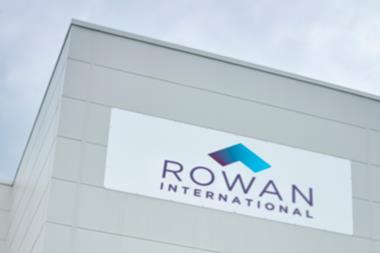
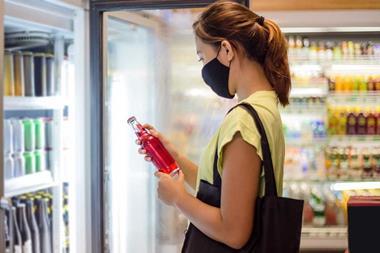

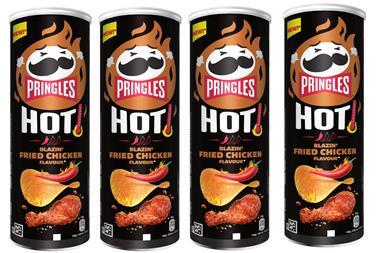

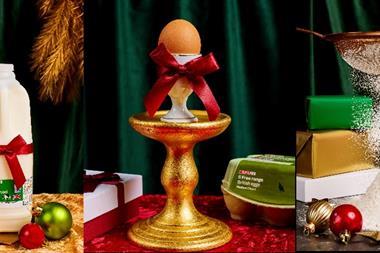

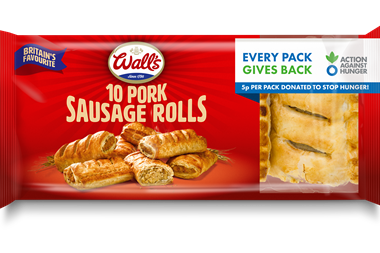
No comments yet